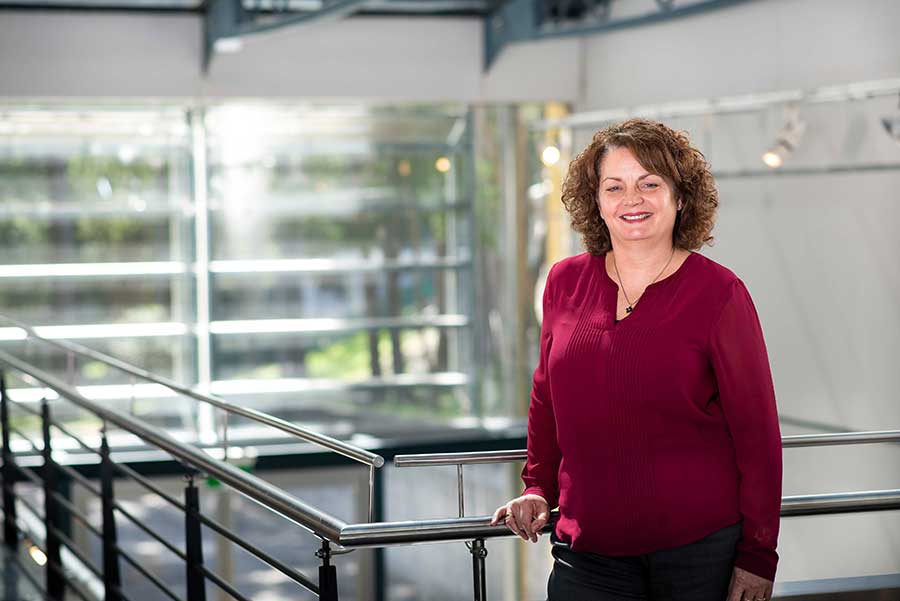Researcher Highlights
Safety first for medical radiation practitioners
Dr Daphne James’ occupational health research is providing the medical radiation science workforce with much-needed advocacy, support and education.

Dr Daphne James is a steadfast advocate for medical radiation practitioners across the country.
The Assistant Dean, Teaching and Learning, for the Faculty of Health and Medicine has more than 30 years’ experience as a nuclear medicine scientist in Australia and the United Kingdom. This extensive practical experience gave Daphne direct insight into the occupational health challenges facing the national and international workforce. Firsthand knowledge of the problems, and a desire to create solutions for her peers, has underpinned Daphne’s academic work ever since.
Through research and education, Daphne’s work is now helping to build evidence and awareness of the key challenges affecting her professional colleagues and empowering them to make informed decisions about their health, lifestyle and wellbeing.
“We want to increase practitioners’ awareness of potential occupational challenges and improve their access to high-quality education so that any potential health and lifestyle problems can be averted or mitigated,” explains Daphne.
Exposing occupational risks
Daphne’s current research explores the dangers of repeated radiation exposure for practitioners who regularly work with low-level ionising radiation on the job.
“My research in this area aims to help medical radiation practitioners better understand their long-term radiation exposure and the potential adverse effects that may arise from it.”
Ionising radiation has enough energy to cause electrons to detach from molecules or atoms. Most people will experience safe levels of ionising radiation exposure intermittently throughout their lifetime, either from environmental sources, such as food and air, or through medical imaging such as x-rays.
However, medical radiation science practitioners are exposed to low levels of ionising radiation much more frequently. And yet, the long-term effects of such low-level exposure on practitioners’ health remain largely unknown.
“Ionising radiation has the potential to cause adverse biological effects, but very little research has been done on chronic low-level exposures.
“By increasing our understanding and awareness of the effects, we can improve education for practitioners and ensure their radiation exposure is kept to a minimal level.”
Daphne shares that gaining access to medical radiation worker records for research in Australia can be a challenge during the research process, and privacy must always be considered and protected. While her current research is focused on Australia, she says there could be opportunities to expand her work internationally down the track.
For Daphne, quality research goes hand in hand with education, allowing results to directly influence teaching content and guide best practice. Insights gleaned from her past and present research projects, in areas such as musculoskeletal discomfort and computer use in the university environment, now support her teaching and supervision of undergraduate and postgraduate students at the University of Newcastle. As a result, Daphne’s work is helping to equip and protect a whole new generation of medical radiation scientists and researchers across Australia.
Dr Daphne James
The University of Newcastle acknowledges the traditional custodians of the lands within our footprint areas: Awabakal, Darkinjung, Biripai, Worimi, Wonnarua, and Eora Nations. We also pay respect to the wisdom of our Elders past and present.
